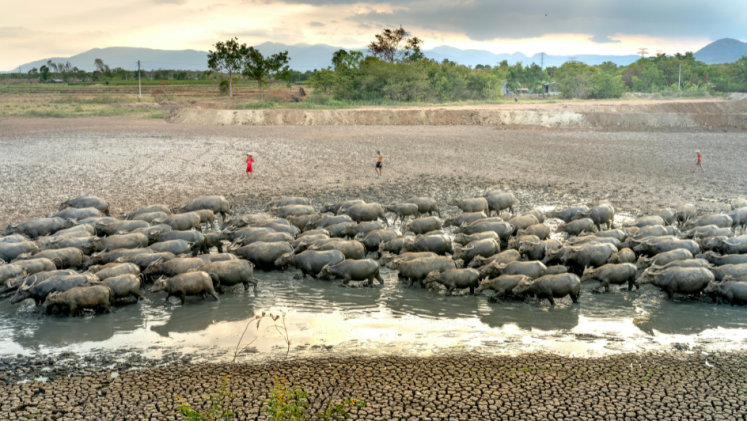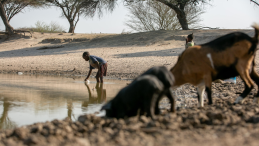The world faces a critical moment for drought resilience, warns a recent Nature article co-written by UNU-EHS senior scientist Michael Hagenlocher. Over the course of the last several years droughts have become more intense, persistent and reoccurring, making now a crucial time for addressing impacts and implementing solutions.
Areas facing drought are struggling to cope, especially as knock-on effects worsen impacts. Droughts are no longer just slow and onset either but can occur much faster and more intense in the form of “flash droughts”. Concurrent events, like droughts and floods occurring within a short time frame from on another are illustrating new extremes as well.
The authors argue that the current situation is not being driven by climate change alone, but other human factors are contributing as well. Management practices and decisions, as well as societal and environmental vulnerabilities are all at play. For instance, land- and water-use strategies, especially those concerning irrigation, can be a drought amplifier due to unsustainable practice. Adversely, they can help reduce drought impacts when done effectively and sustainably.
The consequences of inaction paint a dim picture for the future. Severe droughts could become the new normal in the spring and summer in places such as Europe. New drought severity records are at risk of being broken.
The authors offer several key takeaways for strengthening drought resilience:
Recognize drought is a growing global threat, yet mitigation and adaption are lagging behind;
Integrate the whole of society and government approaches to drought risk management;
Address root causes to vulnerability to ensure effective drought risk management;
Droughts affect ecosystem health and are undermining climate and biodiversity goals;
Droughts undermine human health and well-being and undermine SDG progress;
Estimating economic costs of drought impacts remains a challenge;
Current investments in resilience are inadequate;
Transformative solutions, capacity development and unprecedented global cooperation are vital to resilience.
If we fail to act on the contributing factors to drought, such as climate change, the authors provide a stark warning: “Every region around the world will face increased drought risks.”
To read the full article click here.





